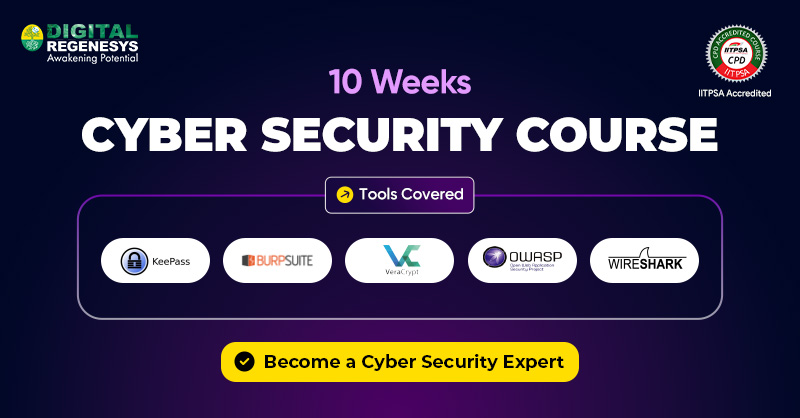Choosing the Best Online Cybersecurity Law Course

The digital world continues to grow at an extraordinary pace. As organisations embrace digital transformation, they face rising risks from cyber threats, data breaches, and increasingly strict regulatory frameworks.
This reality has created a strong demand for professionals who understand not only the technical aspects of cybersecurity but also the legal responsibilities that accompany it.
In this article, we explore what to look for in an online cybersecurity law course, how the right choice can shape your expertise, and why this field is becoming one of the most valuable specialisations for the future.

Why Cybersecurity Law Matters Today
Cybercrime has escalated in both scale and sophistication. High-profile breaches have exposed sensitive data belonging to millions of individuals and have cost organisations billions of dollars.
Alongside these threats, governments worldwide are introducing stricter data protection laws such as the GDPR (General Data Protection Regulation) in Europe, CCPA (California Consumer Privacy Act) in the US, and several regional privacy and cybersecurity acts.
Professionals with expertise in cybersecurity law are essential to help organisations comply with regulations, avoid penalties, and respond effectively to incidents. They play a critical role in shaping policies, managing risks, and ensuring that technical security measures align with legal requirements.
Key Factors to Consider When Choosing an Online Cybersecurity Law Course
Selecting the right online cybersecurity law course is crucial for developing expertise and advancing your career. A strong course strikes a balance between theoretical knowledge and practical application, preparing learners to tackle real-world challenges.
Beyond content, factors such as course reputation, accreditation, instructor expertise, and career support have a significant impact on the learning experience. By carefully evaluating these aspects, learners can select a programme that equips them with technical skills, legal knowledge, and practical insights to handle complex cybersecurity compliance issues.
Focus on these key factors when evaluating courses:
- Accreditation and Reputation – Ensure the course is recognised by credible institutions.
- Curriculum Coverage – Comprehensive modules covering laws, compliance, and incident response.
- Practical Training – Case studies, simulations, and hands-on exercises.
- Instructor Expertise – Professionals with both legal and technical experience.
- Flexibility and Accessibility – Learn at your own pace.
- Career Support – Mentorship, networking, and certification guidance.
Get insights on How Do I Start A Career In Cyber Security?

Benefits of Enrolling in a Cybersecurity Law Course
1. Comprehensive Knowledge of Global Regulations
A strong course provides an in-depth understanding of global and regional regulations, including GDPR, CCPA, and HIPAA. This knowledge helps learners guide organisations in implementing policies that ensure legal compliance and minimise risk.
Many courses also include practical exercises, such as reviewing compliance reports or analysing real-world case studies. These activities help learners apply theoretical knowledge effectively and prepare them for regulatory audits, compliance assessments, and advisory roles.
Key benefits include understanding:
- Global and regional cybersecurity laws
- Industry-specific compliance requirements
- Policy formulation and implementation
- Regulatory risk assessment
- Preparing for audits and legal reviews
2. Practical Skills for Real-World Challenges
High-quality courses focus on hands-on learning, allowing participants to tackle real-world cybersecurity and compliance challenges. Through simulations, case studies, and mock incident responses, learners gain practical experience in responding to breaches, managing compliance audits, and implementing security policies.
This prepares students to act confidently in professional settings, where swift decision-making and regulatory knowledge are critical to minimising risks and protecting organisational data.
Practical skills you develop include:
- Incident response and management
- Compliance audit preparation
- Risk analysis and mitigation
- Policy implementation
- Problem-solving in simulated scenarios
3. Bridging the Gap Between Law and Technology
Cybersecurity law professionals serve as a bridge between legal requirements and technical implementations. They ensure that security measures, such as encryption, access controls, and monitoring systems, comply with regulations.
A strong course equips learners with the skills to communicate effectively with both IT teams and legal departments, ensuring that technical solutions align with legal obligations. This ability is vital for preventing breaches, avoiding penalties, and maintaining operational and regulatory compliance.
Key areas where this bridging is essential include:
- Legal compliance of technical measures
- Communicating with IT and legal teams
- Implementing policies aligned with regulations
- Monitoring and reporting security risks
- Advising management on compliance strategies
4. Enhanced Career Prospects and Advancement
Completing a recognised cybersecurity law course can open doors to high-demand roles in various industries such as finance, healthcare, e-commerce, and government. Learners may pursue positions as compliance officers, data protection officers, cybersecurity consultants, or legal advisors.
Beyond immediate employment, certification demonstrates credibility and commitment, helping professionals access leadership roles, higher salaries, and career advancement opportunities. Courses that include career support, mentorship, and networking further enhance professional growth and industry recognition.
Career benefits include:
- Access to specialised cybersecurity law roles
- Opportunities for leadership and promotion
- Enhanced credibility with certifications
- Higher salary potential
- Networking and mentorship opportunities
5. Staying Ahead of Emerging Trends
Cybersecurity laws and regulations are constantly evolving to address new technologies, emerging threats, and changing business practices. A good course keeps learners informed about these trends, including AI-driven cyberattacks, cloud security issues, and international privacy regulations.
Understanding current and emerging trends allows professionals to anticipate challenges, provide proactive guidance, and implement policies that safeguard organisations from evolving threats. Continuous learning ensures that certified individuals remain competitive and valuable in the fast-paced field of cybersecurity law.
Staying updated includes knowledge of:
- Latest cybersecurity threats
- Emerging technologies like AI and cloud security
- Changing international privacy regulations
- Updated compliance tools and frameworks
- Best practices in governance and policy
Know more about Who Should Consider a Cybersecurity Course for Personal Knowledge.
6. Building Confidence for Leadership Roles
Advanced courses often include modules on governance, ethical decision-making, and policy development, which help learners develop strategic thinking and leadership skills. These courses prepare professionals to lead teams, design effective compliance strategies, and make informed decisions during critical incidents.
Developing leadership capabilities also allows learners to mentor junior staff, lead cross-functional projects, and contribute to organisational security strategy, ensuring compliance and data protection at all levels.
Leadership benefits include:
- Strategic planning in cybersecurity compliance
- Policy formulation and governance
- Ethical decision-making and risk assessment
- Mentoring and team leadership
- Influencing organisational security strategy
How to Identify the Right Course Provider
The course provider plays a critical role in determining the quality of your learning experience. Top providers offer well-structured programmes, access to expert instructors, and practical exercises aligned with current industry standards. They regularly update content to reflect new laws, emerging technologies, and best practices.
Support services such as mentorship, career guidance, and networking opportunities also enhance the value of the programme. By carefully evaluating providers, learners can ensure they gain both theoretical knowledge and practical skills necessary to excel in cybersecurity law roles.
Look for providers that offer:
- Updated curriculum reflecting current laws and trends
- Experienced instructors with dual expertise in law and cybersecurity
- Practical, case-based learning projects
- Career support, mentorship, and networking opportunities
- Positive reviews and strong alumni outcomes
Explore details on Is Cyber Security a Good Career?
Tips for Maximising the Value of Your Course
To maximise the benefits of an online cybersecurity law course, it’s essential to engage actively with the content and participate in practical exercises. Consistent study habits, regular practice, and application of learned concepts to real-world scenarios enhance retention and skill development.
Participating in discussions, webinars, and virtual networking events allows learners to exchange insights and build professional relationships. Seeking guidance from instructors or mentors can help align learning with career goals. Continuous self-learning beyond the course ensures that you remain updated with emerging threats and regulatory changes.
Key tips include:
- Dedicate regular study hours and stay consistent
- Engage in discussions, webinars, and networking events
- Apply learning through practical exercises and simulations.
- Seek mentorship and career guidance
- Stay updated with industry news and emerging trends

Conclusion
Choosing the best online cybersecurity law course is a crucial decision that can significantly impact your professional future. A well-selected course equips you with knowledge, practical skills, and confidence to navigate the intersection of law and technology effectively.
By focusing on accreditation, curriculum quality, instructor expertise, and hands-on learning, learners can address compliance challenges, protect organisational data, and stay ahead of emerging trends.
For those seeking to advance in this field, the Digital Regenesys Cybersecurity Certificate Course is an ideal choice. It combines expert instruction, practical exercises, and industry-recognised certification to prepare you for high-demand roles in cybersecurity law.
Take the next step in your career – visit Digital Regenesys today to explore the Cybersecurity Certificate Course and unlock your potential.
Last Updated: 8 October 2025